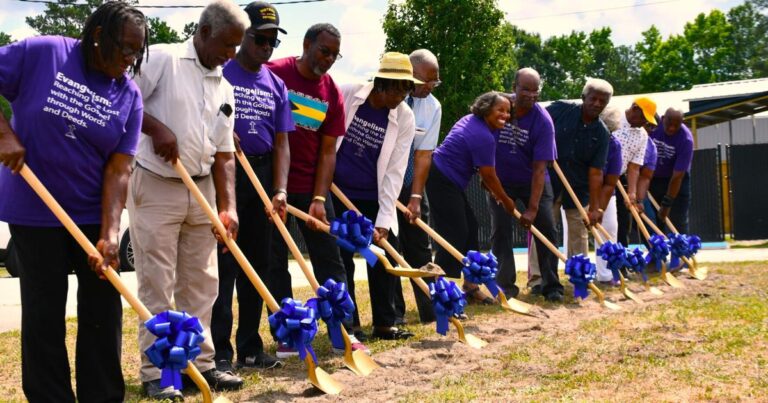On June 3, members and civic leaders gathered under a shade tent at Moncks Corner Baptist Church to break ground on a facility that will make a real difference in the lives of those in need. This community-changing initiative is being called “The Soup Kitchen,” a name that refers more to the ongoing plans than to any future facility operations.
Funding for the facility came from a Community Development Block Grant (CDBG), which provided more than $250,000 for the new 900-square-foot commercial building. The soup kitchen has long been the name for the Moncks Corner Baptist Church’s efforts to provide meals to the needy, and volunteers will now have a better place to serve.
“It will have a lot more storage space, a lot more counter space, modern appliances, a small office and a restroom,” said Michelle Taylor, of the church's project committee.
CDBG is a federally funded grant program that supports development projects in low- to moderate-income neighborhoods. The Berkeley County Executive oversees the application process.
“The people who dine here need help. People who just can't get by. In this economy, people need help more than ever,” said Moncks Corner Mayor Thomas Hamilton. Hamilton also announced he is not keeping his paycheck. As mayor, the town pays him his salary. He said he will now be giving that money to the kitchen.
The CDBG program is intended to address the needs of unincorporated areas and municipalities in Berkeley County for public facilities, economic development, housing, public services, and other eligible activities. It may be a rigorous process, but help is available.
“A lot of times people are hesitant to apply for these grants because of intimidation and they don't know how to apply,” Berkeley County Supervisor Johnny Cribb said, “and we've done a really good job over the last few years working with people both before and throughout the grant application process.”
Counties report an increase in applications thanks to assistance with the application process. With the county grants office providing information and guidance, some are less hesitant than before. What's more important for applicants is to follow through on their plans. On average, nearly 20 projects are applied for each year, and fewer than 10 of them win grant funding.
“My favorite projects are the ones where someone is already working on something and is already on a mission,” Cribb said, “and then they ask for funding and say, if we get the funding, we can do this better. Some people hear that here's the funding and think, maybe we could do something with it, but we do a really good vetting process and it's very competitive.”
Organizations that received funds last year include Changed Lives Ministries, Cross Community Center, Habitat for Humanity, Helping Hands of Goose Creek and Angel Wings.
The kitchen project won't be completed until late 2025, but in the meantime the soup kitchen will continue its longstanding mission of providing meals to those in need.


